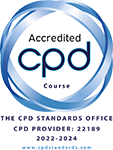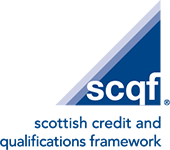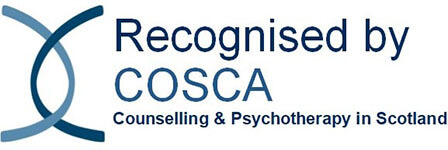Complaints Procedure
ACT Counselling Services Complaints Procedure
Complaints Procedure
If any of our service users or parties connected are unhappy or dissatisfied with any of the services offered by ACT Counselling Services Ltd, then we would like to know in order to work with you to find a resolution. All complaints are treated seriously, fairly with sensitivity and confidentially.
Complaints Procedure Aims:
- To enable any complaint to be investigated in the fairest possible way
- To ensure that complaints are dealt with in a timely manner
- To enable the consequences of mistakes to be resolved and avoid any unnecessary conflict
- To help in service development
- Anyone has the right to escalate their complaint to Cosca if they remain dissatisfied after exhausting ACT Counselling Services internal procedures.
How to access our Complaints Procedure document
- It can be viewed and downloaded as a PDF from the ACT Counselling Services website
- A hard copy is attached to the notice board in the main reception of the ACT Counselling Services premises
- A hard copy can be requested by phone, email, letter or in person by contacting ACT Counselling Services.
- Although we do not have the resources to produce this procedure in multiple languages and formats, it can be translated, viewed in larger text and read out loud here using standard online tools.
Who can complain
- Anyone who is using our therapy, supervision or training services
- Anyone who has used the above services in the last 6 months.
- Any third party who is working with or representing someone who is using or has used the service
Anonymous complaints will be investigated by the Academic Director who will use discretion in assessing what action, should be taken, however the investigation will be limited if there is a lack of clarity from complainant.
What if the person complained against has left?
If the complaint is against a former worker of a COSCA Membership Organisation:
- any investigation is conducted for the learning of the organisation e.g. to identify any systematic failures
- wherever possible the complained against is offered the opportunity to represent their own interest
- the outcome report to COSCA, but the normal sanction report will not be published.
- if the former worker is still a member of COSCA, COSCA may investigate under the system for dealing with information about members.
What if the complaint is vexatious or malicious?
If the Academic director determines the complaint to be vexatious or malicious, the complaint will not be pursued any further. This will still be recorded in the Complaints log.
What are the limits of confidentiality?
The investigator(s) and will act confidentially in their handling of the complaint.
The original investigator finds that there are other parties involved such as (students, staff members) then they will seek permission from the complainant to conduct the investigation thoroughly and meet with the other parties.
The complainant is required to give permission for confidential information pertinent to the complaint, to be disclosed by all parties cited in the complaint to those involved in handing the complaint.
What will happen if legal proceedings might become involved
The investigator can halt the complaint at any stage should it emerge that legal action is under way, pending or intended, until any legal process is complete.
When can a complaint be discontinued?
A complaint can be discontinued if:
- The complainant fails or refuses to participate at any stage of the complaint procedure without good reason.
- Or the complainant formally withdraws the complaint
- And both parties will be informed.
What if there’s a conflict of interest?
An identified Board Member will be responsible for assessing and dealing with any conflict of interest.
Will both parties meet?
After any informal stage/mediation, the complainant and the complained against and /or their representative, will not come into contact at any time in the course of the investigation.
What is the time limit
The time limit within which service users or third parties may make a complaint is 6 months. It is however beneficial for all concerned if the complaint is brought to our attention as soon as possible.
How to complain
A formal complaint should be made in the first instance to the Operations Manager, then can be escalated to the Academic Director. This can be in person by appointment, by telephone, or in writing by email or letter.
Please contact:
Operations Manager
ACT Counselling Services Ltd
210 Glasgow Road
Rutherglen
G73 1SA
Telephone 0141 554 0838
Help
ACT are able to talk you through this complaints process and answer any questions you may have. If you have any difficulty whatsoever in making a complaint in person or in writing, please contact the organisation outlined below for additional support:
The Advocacy Project
Cumbrae House
15 Carlton Court
Glasgow
G5 9JP
0141 420 0961
Who is covered by the ACT complaints procedure?
This complaints procedure covers paid Tutorial staff, subcontracted Clinical Supervisors, subcontracted Therapists, administrative staff, students and directors.
Safety of our service users
The safety of our service users is paramount. Suspension of counselling practice, training, supervisory practice and/or disciplinary proceedings may take place at any stage of the complaints process, if considered necessary.
What will happen if the complaint is upheld
- Examples of sanctions range from further inhouse training to formal CPD, Reporting to professional bodies and dismissal.
- Operations Manager, and Academic Director will impose sanctions depending on stage and nature complaint. This would be noted in Complaint’s log and personnel file.
- All outcomes will be communicated face to face then followed up in writing.
- Operations Manager, and Academic Director will remove any sanctions.
- ACT have the option to seek legal or other specialist eg COSCA advice at any time.
Phase 1 Informal Complaint
When a complaint has been received initially then an informal resolution will be sought. This could involve a face-to-face meeting or written explanations. The complaint will be handled by the Operations Manager, or Academic Director /Board Member. If the Operations Manager/Director is the subject of the complaint (i.e. a conflict of interest) then a Board Member will manage the complaints procedure.
If the party making the complaint is unhappy with the outcome, then a formal complaint may be made.
Phase 2 Making a Formal Complaint
When a formal complaint has been received it will be acknowledged by the Operations Manager within 7 days of it being received. The subject of the complaint will receive a copy and both parties will be forwarded the complaints procedure.
Investigation of the Complaint
Operations Manager will investigate the initial complaint and if unable to resolve, it will be escalated to the Academic Director.
The investigator will have access to any relevant documentation, policies, and procedures. Furthermore, the investigator may interview members of staff, if appropriate. They may ask for evidence from either party and if this is sought in person, they will meet with each party separately. All parties will have the right to be accompanied, and/or be represented, by a supportive person of their choice.
The investigator will make a written response to the complainant within 28 days, a copy of which will be sent to the director managing the complaint at ACT Counselling Services, and the person complained against. The maximum time period allowed to investigate the complaint and to respond is 6 months.
The investigator will make recommendations regarding the action required to bring about the resolution of the complaint and any sanctions which he/she may consider appropriate. This decision will be communicated to the complainant.
The complaint investigator who is managing the complaint, can adjourn at any time and at any stage of the complaint eg due to global pandemic/ legal action. If it emerges that legal action is under way, pending or intended, until such time as any legal process is complete. The process will be re-started at the point at which it was stopped, within a reasonable time.
Phase 3 Making an appeal
A complainant may appeal against the findings of the investigator on the following grounds:
- that the complaints procedure had not been followed
- that there was new evidence which the investigator did not have access to in the investigation
An appeal will not be accepted on the grounds that the complainant disagrees with the investigators report.
How to make an Appeal
The dissatisfied complainant must make an appeal in writing within 14 days of the receipt of the investigators report.
The reasons for the appeal must be evidence based, factual and clearly set out in writing.
The appeal will be acknowledged in writing by the Director and considered by the board
The complainant will be informed in writing within twenty-one days whether or not the appeal is accepted.
If the director decides to accept the appeal then a panel will be set up to consider it. The panel will consist of 1 ACT Directors and 2 members from out-with ACT with experience and knowledge related to the appeal.
The panel will meet within 28 days of the notification of the acceptance of the appeal to the complainant.
No member of the panel will have been involved in the investigation of the initial complaint.
The Appeal Hearing
All parties involved in the appeal hearing will be provided with 14 days notice of the date of the hearing. All involved will also be informed of who will sit on the appeal panel.
All parties involved will receive the necessary documentation at least 14 days before the hearing takes place.
The complainant and the person being complained against will be asked to make a written statement to the panel which will be circulated seven days before the hearing.
The complainant and the person being complained against may be required to attend the hearing and may be accompanied, and/or be represented, by a person of their choice.
The complainant and the person being complained against will have the opportunity to make a short statement to the hearing.
The investigator of the original complaint will be available to give information to the panel.
The appeal hearing will be recorded, and minutes taken.
The panel’s decision will be reached during a private discussion and a written record of this discussion will be taken. The panel’s decision will be provided within 7 days.
ACT Counselling Services will abide by the decision and recommendations of the appeal panel.
ACT has the ability to adjourn at any time and will restart within a reasonable time at the point it stopped.
Outcome report to Cosca
- The Outcome Report to COSCA at the Conclusion of Complaints Proceedings will be submitted to COSCA.
- The Outcome Report will be submitted immediately or within one month of the conclusion of our complaints process.
- COSCA will publish upheld complaints and their sanctions regarding COSCA Individual Members or Member Organisations.
If the complainant remains dissatisfied after the decision of the appeals panel or remains dissatisfied about the content of the investigators report he/she will be advised to contact COSCA.
Complaints to COSCA
COSCA is the professional body for counselling and psychotherapy in Scotland. ACT Counselling Services Ltd is an organisational member and we are therefore also covered by the COSCA Complaints Procedure.
In the event that a complaint is not resolved satisfactorily by the ACT Counselling Services Complaints Procedure, it is possible to refer a complaint to COSCA.
COSCA
16 Melville Terrace
Stirling
FK8 2NE
01786 475140
Complainant will have 28 days to complain to Cosca.
Cosca will, on receipt of the complaint, verify that the members complaints procedure has been followed and the outcome was lawful, reasonable, and properly explained.
Keeping records of complaints
A record will be kept of all complaints received. Anonymous complaints will also be recorded, including the reasons for any decision to pursue or not to pursue the complaint. Records of complaints will be kept for a period of six years. A report of the complaint, procedure and outcome will be logged and submitted to COSCA.
ACT Counselling and CBT Services
210 Glasgow Road, Rutherglen,
G73 1SA
Email [email protected]
Website www.actcounsellingandcbtservices.co.uk
Telephone 0141 554 0838
Contact Us









